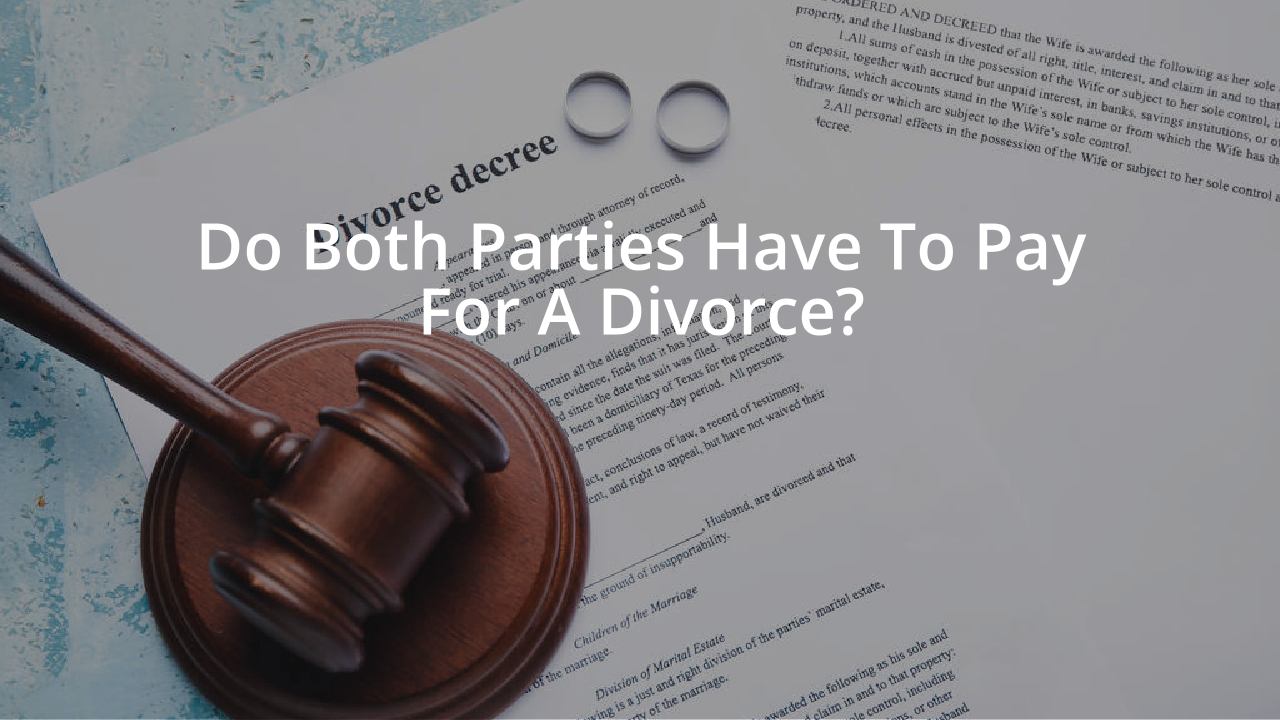
Do Both Parties Have To Pay For A Divorce?
Yes, both parties typically need to financially participate in a divorce process. The court will need information about each spouse’s income and assets to fairly distribute property and financial obligations. If one spouse can’t pay their share, the court may order them to bankruptcy so that a more equitable distribution of assets can be made.
Do You Have To Go 50/50 In A Divorce?
No, you don’t have to divide your marital assets and debts 50/50 in order to secure a divorce. However, courts will often approve divorces where couples agree to this distribution scheme.
No, neither party is obligated to split their marital estate 50/50. A court may award an estate to one spouse based on the contribution that individual made to the marriage, as well as any children from the marriage.
Many divorcing couples opt to split their marital property 50/50 and this decision is often based on personal preference. However, there are a few potential reasons why one spouse may prefer a different division of property.
If one spouse is significantly more financially able than the other, they may want to receive more of the marital estate in order to maintain financial security post-divorce. On the other hand, if one spouse had been responsible for most of the childcare during the marriage, they may want more property given over to the children in order to ensure that they maintain some relationship with their children following the divorce.
Ultimately, it is important to consult with an attorney before making a final determination as to what division of marital property is best for you and your ex-spouse.
Get more info by visiting this post.
How Long Does It Take For Divorce To Be Finalized?
The divorce process can take many months or even years to be finalized. Most states have laws in place that dictate the timeline for divorce proceedings, but each case is unique and the time it takes to finalize the divorce will vary. Some factors that can impact the duration of the divorce process include whether there are children involved, whether there are financial issues to be resolved, and if there are any disagreements or disputes between the couple. In general, though, it is usually safe to say that a divorce will be finalized within a year or two after it has been filed.
In most states, divorce is finalized within 150 days. If one spouse is absent for more than 60 consecutive days without notifying the other, then the court has the power to dissolve the marriage without the spouse’s consent. This means that in some cases, it can take much less time to get divorced than you would think!
There is no definitive answer to this question as divorce can take a variety of lengths of time, depending on the specific facts and circumstances of each case. In general, however, divorce can typically be finalized within six months to a year after it is filed.
Navigate to this website to learn more.
How Long Does It Take For A Divorce To Be Final In California?
It can take anywhere from a few months to a couple of years for a divorce in California to be finalized. There are a variety of factors that can influence the time it takes for a divorce to be finalized, including the complexity of the case, whether any children are involved, and how well each party cooperates with the other.
As of October 1, 2017, the Supreme Court of California had set a new timeframe for when a final divorce decree may be issued in the state. Previously, a final decree could be issued within six months after the divorce was granted. Starting on October 1, 2017, a final decree may now be issued within three months after the divorce is granted.
When a married couple gets divorced in California, the divorce decree is final after either [the spouse] has agreed to it or after the divorce has been granted by a court.
Can You Divorce Without Splitting Assets?
Divorce may involve a fair amount of financial planning and asset allocation. Can you divorce without splitting assets? There are certain circumstances in which a divorce can be finalized without dividing assets. If one spouse is deemed to have perpetrated abuse, the couple may not be able to agree on any assets, including property and funds. In extreme cases of abandonment or chemical dependency, the courts may decide that any assets should be given to the spouse who has been wronged. However, in most cases, divorcing couples will need to create a settlement agreement in order to determine how much each party gets after the divorce is finalized.
It is possible for spouses to divorce without splitting assets, provided both parties agree to this and are able to fully prepare for the court proceedings. If one spouse refuses to approve a divorce based on the decision that assets should not be divided, a judge may still order asset division even if it is not negotiated between the couple.
In most states, it is possible for a divorcing couple to divorce without splitting assets. This is usually done by agreeing to a “no asset” division of the couple’s property, with each party receiving whatever property they brought into the marriage. If there are children involved, their custody and support may also need to be negotiated.

